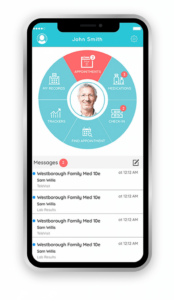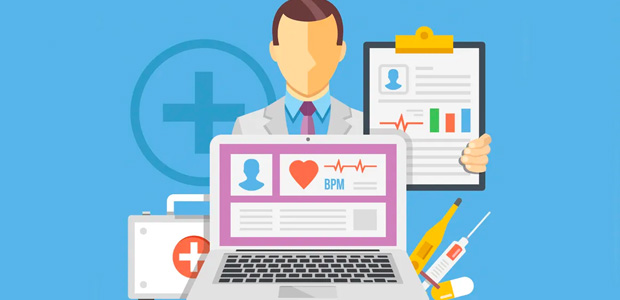Why Your Patients are Failing to Use Your Portal Properly

Patient Portal Challenges
Healthcare consumers vary from tech-savvy Generation Z, Y and Millennials, familiar with rapid click-throughs, to straightforward answers, to patients with little or no faith or proficiency in computing tools. In any instance, just a few words can sum up the probable value-added of patient portals for consumers: ease of communication, speedy solutions and effective chronic disease management – but only if portals are truly integrated into patients’ lives. A ton of healthcare practices utilize a full-blown EHR as part of their portal.
Likewise, healthcare providers can realize no less than three huge benefits from patients’ portal usage: better efficiencies, cost-savings and enhanced healthcare outcomes – again, only if patients make use of their portals.
But with only about 25% of patients consistently depending on portals, many of these benefits have been unachievable.
Why Do Most Patient Portals Realize So Little of Their Promise?
- Patients Have No Real Interest
The reason why many patients underutilize their patient portal is because they see very little value in it, they are simply uninterested. Moreover, patients who are healthy and who needn’t manage chronic illness are in little need of regular access to their medical records / patient portal. For many patients, portals do not accurately incentivize both intelligently (offering sufficient information to be beneficial) or financially. Patients who are normally healthy have actual lives and aren’t drawn to fixate on a daily “health portal” or a “Facebook of Health.” Says one patient at the Mayo Clinic: “I consider myself very internet-savvy, but there’s no reason for me to be logging into my Mayo portal all the time. There’s no UTILITY in it for me. I think a lot of ordinarily heathy patients my age and younger would be in the same boat.” - Physicians are Uninterested
It’s not just patients that find it unusable. A lot of doctors have no desire to use it either. Plus, many lack the backing of a team (nurse, administrator, etc.) who can fulfill the role when portals are just something they can’t reasonably grasp. While all the doctors are by all accounts able to recall who they saw, when and what was done, etc., few, if any, actually do. - Security Concerns
The AMA asserts that security issues are a major reason why many patients aren’t taking advantage of online portals. Such anxieties were discovered to be more widespread in patients over 40 years old. The reasoning is that patient portals are simply another place for hackers to strike. Since healthcare data is so significant to hackers, they’re more apt to home-in on these accounts, which house so much personal health information. Truth is, the more online accounts a person has, the higher the risk that one will get compromised. Since the typical person employs an individual password up to 14 times, a hacker can more easily get into a user’s account. After all, 80% of hacks are the result of weak password management. - User Confusion, Anxiety
There’s always the danger of confusion or misunderstanding when employing a new online platform. Attempting to gain knowledge of all the functions can take time. This is why various healthcare providers provide new user visits to steer the patient through the features. But this isn’t the only uncertainty patients encounter with patient portals. Basically, half of the U.S. adult population are deficient with health literacy. If a user doesn’t comprehend the medical terms within their health records, they’re apt to get confounded. And this can also lead to more anxiety. Healthcare portals frequently reveal medical tests and lab results, so patients will want to verify when results are posted. Since many patients lack health literacy, they may erroneously construe the results and become more apprehensive. Often, this will lead to false assumptions, and they may begin to query results that are false equivalencies, leading to even more panic. Without someone to precisely describe a diagnosis, people will begin to think the worst. - Prefer to Speak Directly with a Physician
When all is said and done, surveys of why patients won’t use the patient portal come down to one main reason: they prefer to speak with their physician directly. Patients want to actually talk with real people about their health, including qualified doctors and nurses. While online forums are great for getting basic understanding of their current health, for some, it’s not a suitable substitute for a real doctor. Says another Mayo Clinic patient: “I’m 46 years old and have a patient portal and the iPhone app, but I’m pretty healthy and generally only see my family doctor once a year for a check-up and flu shot. I like the idea that Mayo has a neat health app, but I don’t find any reason to use it except to check the date and time of my annual exam and change if necessary.” In another survey, it was found that with Medicare and Medicaid coverage, compared to those persons with commercial insurance, patients were more apt to skip portal use in favor of having a direct conversation with the doctor or someone else at the clinic or hospital.
What Can Be Done to Boost Patient Portal Usage?
 One aspect to take into account, providers frequently don’t treat their portal as an essential part of the patient experience, let alone a crucial portion of their communication plan. This means that although the portal might be present, a patient may be totally oblivious of it. And if they do know it’s readily available, it’s frequently not made clear or introduced with any type of primer.
One aspect to take into account, providers frequently don’t treat their portal as an essential part of the patient experience, let alone a crucial portion of their communication plan. This means that although the portal might be present, a patient may be totally oblivious of it. And if they do know it’s readily available, it’s frequently not made clear or introduced with any type of primer.
When healthcare providers fail to manage their patient portals with an all-inclusive communications strategy, engagement is being utilized incorrectly.
Medical practices must present relevant and helpful information on their portal, delivering distinct and concise directions that are found with ease, making the user experience effortless and streamlined as possible.
It’s critical to remember that not all patient portals are created equal. Users’ expectations are very important to manage. Patients are just as likely to stay away from using a portal if they feel it’s too complicated or they’re unable to set up their profile with ease. The ends up being a huge waste of their time and a disappointment.
Conclusion
Finally, it’s essential to keep in mind that you’ll need appropriate security protocols to assure patients that their personal information will be safeguarded online. Constant contact with patients and provider demonstrations will ultimately have a positive and lasting effect on patient usage.

